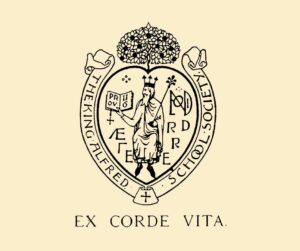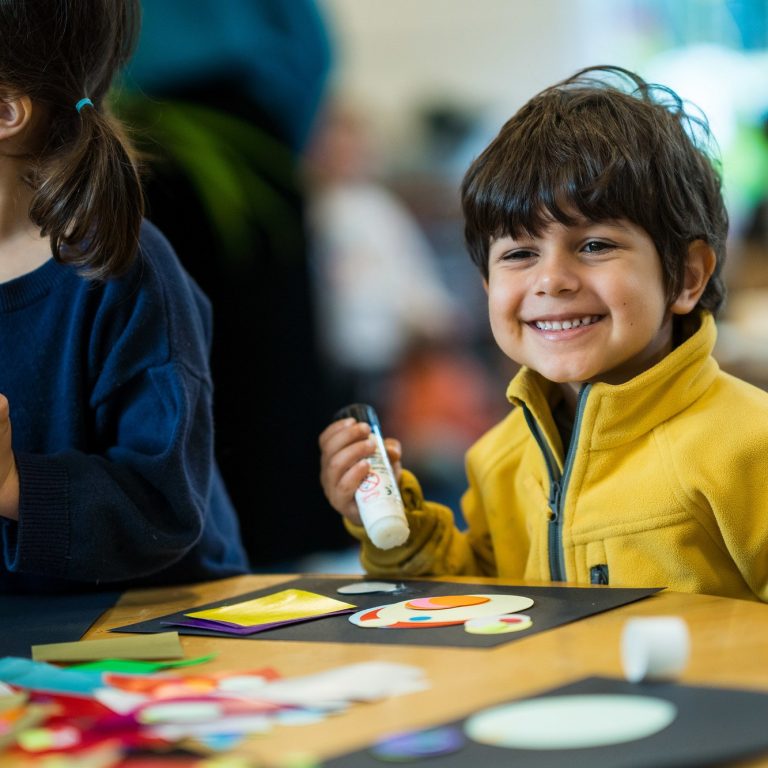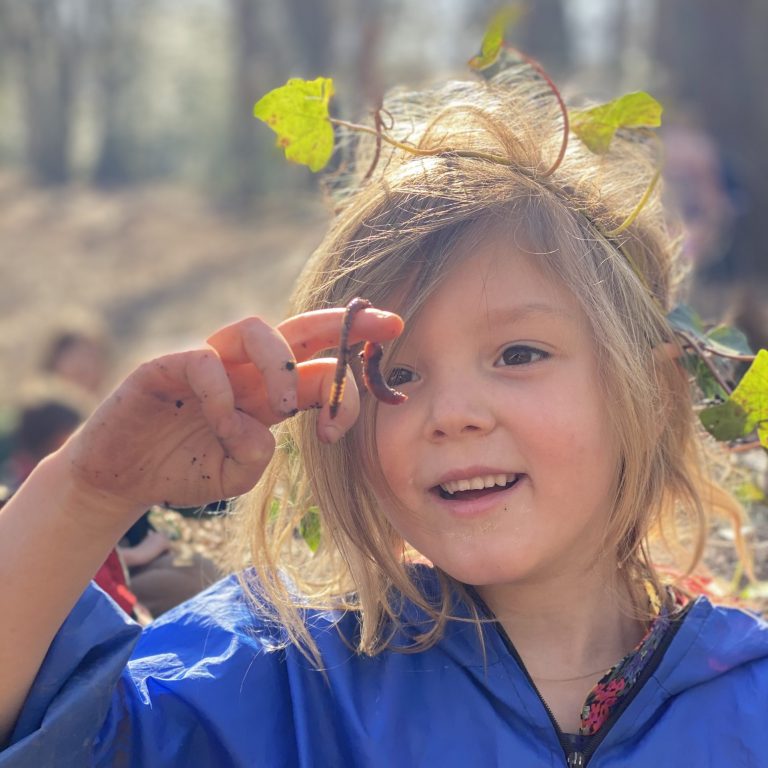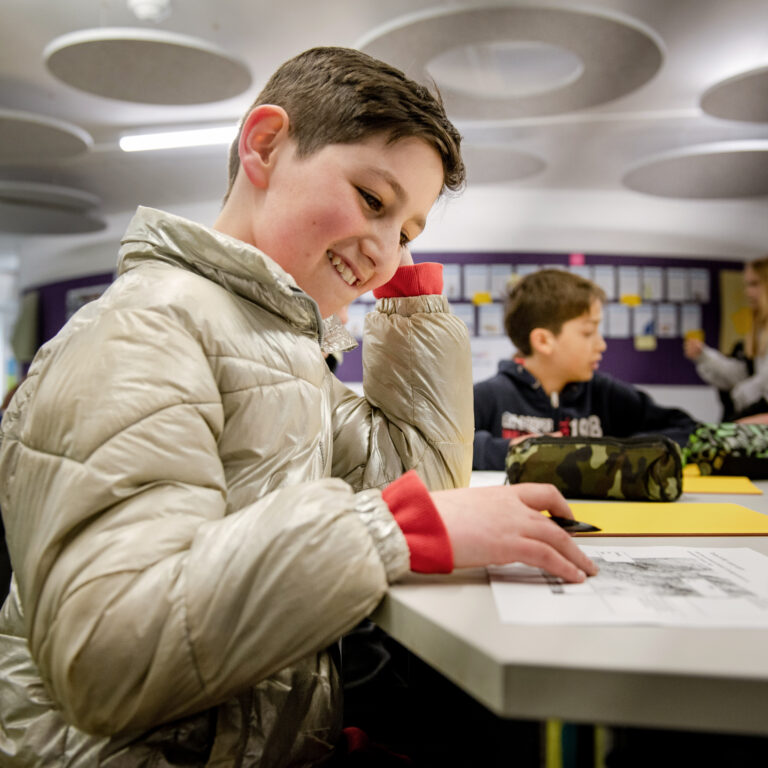Head’s Blog – AGM Speech 2024
9th February 24
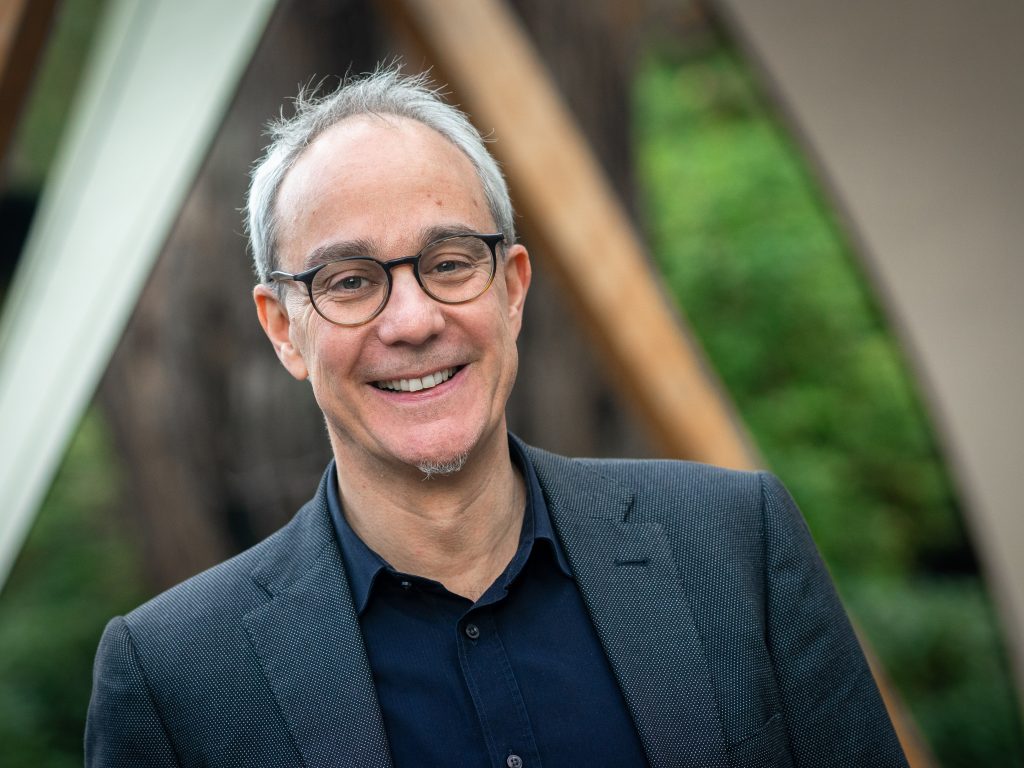
You can watch Robert’s speech from this year’s AGM here or read the transcript below:
Since the AGM this time last year, I can think back on many special School moments. The one that will live longest in the memory is the beautiful summer’s day back in June, when the sky was blue and the sun shone, the hum of conversation and play could be heard across the field, and the community past and present came together to celebrate our 125th anniversary.
As with all the best moments, the lead up was an important part of the process; at times, intense, at others, entertaining. To see the School’s history come to life in our beautiful and unique 125 book and in our magnificent archive exhibition was hugely rewarding and moving.
As a historian, I had always felt a little self-conscious that I did not know more about our past. I had always wondered, for example, why our founders had settled on the name of ‘King Alfred’. Here is a figure more often than not confused with King Arthur – no, he did not have a round table, but yes, he did ‘burn the cakes’. Whilst that at least I knew, this was an opportunity to dig deeper.
Back in 1897, the country was building up to the 1000th anniversary of his death, which took place in the year 899. He was high in the public consciousness as a symbol of British greatness – being the only English monarch to be awarded the epithet of ‘Great’. Like all historical figures, his reign is open to multiple interpretations, but certain ideas were powerful in the late Victorian era of complex industrialisation, urbanisation and social and political change. His re-instatement of the Witan – or Baron’s Council – was seen as an early sign of England’s distinct and admirable democratic tradition. His translation of the law codes into Olde English and their distribution around the country was seen as his commitment to a just and fair society. His translation of parts of the Bible, opening of new schools, and employment of tutors for his three daughters (after whom our three boats are named) was seen to embody his passion for education (albeit in a medieval Christian context, where he believed the Viking invasion was punishment from God due to the ignorance of the people). He was seen as the leader who had brought about the revival of the nation in its darkest hour of struggle against the heathen Vikings – guiding it from adversity to triumph, from ignorance to wisdom, from darkness to light.
His image, as we would all recognise, sits front and centre in the KASS logo.
Created by Charles Voysey, the eminent Arts & Crafts designer and theorist of the late 19th and early 20th Century, it had always intrigued me. There is Alfred spelt out in Olde English with a jumbled-up combination of seemingly the wrong letters. There is a picture of the King himself – complete with crown (on the surface, not very democratic) and holding a Bible (on the surface, not very non-religious). Next to his staff is a strange symbol with a N attached to D with an O in the middle – it turns out that this is a ‘monogram’ spelling ‘Londonia’ taken from one side of a penny cast when Alfred conquered the capital from the Danes in 886.
Often placed just underneath the logo is our motto. ‘Ex Corde Vita’, traditionally translated as “out of the Heart Springs Life”.
Somewhat to my surprise, I discovered that it has a biblical origin. It is taken from the book of Proverbs – Chapter 4, Verse 23 – the same book, incidentally, that Alfred holds up in the logo. Originally in biblical Hebrew, the words were translated into Greek, then into Latin and then into English. Let us dwell for a moment on the Latin.
- ‘Ex’ means ‘out of’, as in Exit.
- Corde is the origin of words such as coronary and means ‘heart’.
- Vita meanwhile means, ‘Life’ – such as in Fellini’s “La Dolce Vita” and gives us words such as vitality.
Interestingly, there is no verb. Instead of “Out of the Heart springs life”, it could instead be translated as ‘Out of the heart, springs of life’ or simply ‘Out of the Heart, Life’.
Alternatively, one can think differently about the word Corde. I am grateful to Judith our Classics teacher, and to Al’s Dad, a scholar of biblical Hebrew, for explaining that in classical times, the concept of heart was understood differently to today. When I hear heart, I instinctively think of it as the seat of emotions. Back then, it was also to seen to be the seat of intellect, wisdom and judgement. Some have linked the word ‘Corde’ with the word ‘core’ embodying the notion of ‘essence’, ‘innermost being’ or even ‘soul’. So, we could take ‘Ex Corde Vita’ and perfectly reasonably translate it as ‘out of the core, life’.
This last translation I personally find the most compelling. It is optimistic and creative, encouraging each individual to discover and express who they really are. The ‘source of life’ for every person will be different and may change over time, and the motto elegantly allows this to be the recognised. Its simplicity leaves plenty to the imagination.
It also speaks to what I have come to understand is the superpower of our School, and beyond that, it is a gateway into the fundamental principle of education.
The person who has described this most eloquently is the late Sir Ken Robinson. He uses the metaphor of a garden where the school is the soil. The learners grow from seeds into the flowers, trees and plants that are inherent in their nature. Occasionally, a sapling may struggle. The answer here is not to reject it because it does not fit the expected path. Rather, it is to nurture it by understanding what can be adapted in the conditions to make it flourish. Maybe it needs more sun or less. Maybe more water, or less. Maybe more love, or less.
Ken Robinson contrasts this to a factory system where the outputs are weighed and assessed and standardised and there is inevitably little room for individuality. It’s a cookie cutter process which enables the system to be efficient and measurable, and which is primarily designed to meet the perceived needs of society more than the learners themselves.
A few years ago, one of our now parents, gave a TEDx talk on a similar theme using the metaphor of a fish tank. If your fish are unhealthy, first take a look at the water they are swimming in. Over time I have come to understand that this is our greatest strength. We create an environment where plants can grow, fish can swim, young people can thrive. We give our students the freedom to be themselves and to find out over time who they really are. In other words – Ex Corde Vita – from the core, life.
As everyone here appreciates, this is a more complex journey than a conventional environment. The more the path is opened up, and the less it is buckled down, the more room there is for ups and downs, highs and lows. Freedom allows moments of struggle as well as success.
But the results can always be seen by the end of the journey. It is then that you see all the pieces falling into place in a young person. Patience is required – only when it is ready will the plant blossom into its true fullness.
It would be a mistake however to think of this as a crude rewilding exercise where nature is left to itself. Learning will not happen without well-structured curriculums and pedagogies and assessment. Personal development will not happen without clear boundaries carefully held, and empathetic support to help each student to learn to take responsibility for themselves. Thriving cannot happen without strong structure underpinning the freedom.
This calls to mind my somewhat ambivalent response to the motto when I first arrived. I loved the warmth and welcome of KAS but I knew it needed a stronger spine. I was worried that emphasising things other than the heart would be seen to go against our ethos, and would lead me into some trouble. Understanding now that the classical view of the heart encompasses emotion and intellect and wisdom, makes me far more at ease with Ex Corde Vita and enables me to appreciate it in a whole new light.
Inherent in the garden metaphor is the notion that we at KAS are fundamentally a relational place, not a transactional one. We do not conceive of a system where children are inputs and, say, exam results are outputs. Sadly, this has become the underlying premiss on which much of England’s education system has become based. I sense that this grew somewhat by accident and tipped from well-intentioned good ideas to something that was damaging. Increasing accountability, driving up standardised scores, creating guidance on lessons, are all positive ideas in themselves, but then they went way too far in the way they were implemented. Bureaucratic processes meant that they became the aims of the system rather than the means to improve it. Increasingly, the human element was lost.
Witness the dramatic national fall in student attendance that has been plastered over the media. Witness the ongoing teacher retention crisis which is impacting schools and pupils up and down the country. Witness the impact of an Ofsted system where a dedicated community headteacher tragically ended up taking her own life. Education, ultimately, has to have people at its centre.
This takes us back to the character of King Alfred. I love the fact he was seen as the engine of revival. He breathed new life into a broken nation and it was this that appealed to the founders. They dreamed of educational revival leading to national revival, and they saw KAS as a key engine to make this happen.
Today we continue to honour this intent by reaching out beyond our gates. We are seeking to give more young people a taste of the best of what KAS has to offer, via bursaries, events and partnerships. We are codifying and sharing with other schools our carefully developed, values-based practices, ranging from enquiry-based learning to digital portfolios, and School Directed Courses to the Village. And, we are joining with others to amplify the voice that says the system needs rebalancing with the ‘KAS defined’ heart at the centre.
This is a time when what we do here is extremely important. Political change is most probably on its way, and that will create an opportunity for the education pendulum to swing back to something more human-centred. Not only do we need to provide our own students with the very best experience, but we need to show others that it can be done in practice. We need to join with and empower all those who share this vision. And by working together, let us hope, that in a year’s time at the next AGM, we are seeing the beginning of new King Alfred inspired educational era, with the inherent humanity of Ex Corde Vita at its heart.



